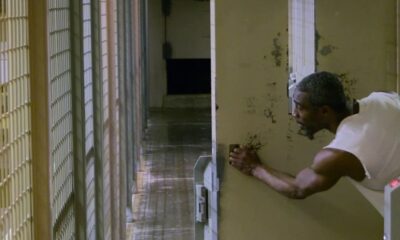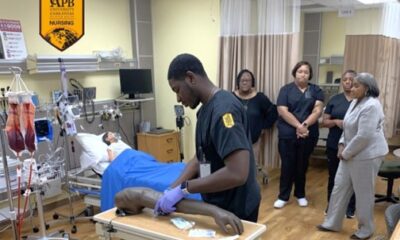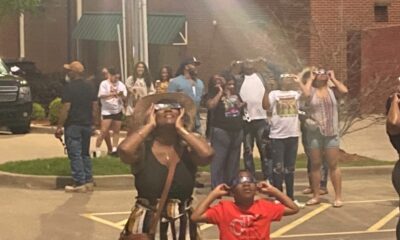Featured
Black Americans Hunkering Down and Helping Out as Outbreak Spreads

Donna Barnes passed out the carefully packed lunches at her church which is providing food to children who are home from school because of the coronavirus.
“My pastor had been contacted by the school district, requesting that our church be a site where children could pick up lunches to have something to eat,” Barnes said. “That’s all some children get. We are in a neighborhood…and not far from us, we have at least three apartments with lots of children. We need to give them the opportunity…if someone can run them up here to pick up lunch, that’s the least I can do.”
Barnes is an instructor at a university that halted face-to-face instruction last week, and she is now teaching her classes online. Her son’s plan to take a cruise next week with his high school graduating class was also upended. Like so many Americans regardless of race, age or income, Barnes is tailoring her everyday life to the new reality created by the precautionary guidelines issued by the Centers for Disease Control to slow the spread of the pandemic.
“We had already paid for everything in its entirety,” she said. “We cancelled actually before Carnival Cruise Lines did because of concern for our children.”
At the time of the cancellation, the cruise line offered to refund half of the cost and treat the remainder as a credit. But, according to Barnes, two days ago when Carnival cancelled the cruise, parents were told they could request a full refund or credit.
Doctors Offer Advice
The medical community like the rest of the country is coming to terms with the novel coronavirus.
“We don’t know what the course of this is,” Dr. Sean Campbell says. Campbell is an Internal Medicine physician and Nephrologist at Stony Brook Hospital in Suffolk County, New York. “The Chinese have been dealing with this since December, and they are just now coming back to normalcy.”
Campbell remembers the SARS virus when he was in medical school in 2003 but points to this pandemic as uncharted territory in his lifetime. And, it is the scale of mortality he says that is especially daunting.
“They’re saying it’s like a two-percent mortality,” he emphasizes. “If you know 100 people, two of those who get infected would succumb to the disease.”
For comparison, Campbell analogizes the flu where for every 1000 infected, two would die.
Campbell is clear about the indiscriminate nature of COVID-19 and recognizes the disease’s threat to communities disproportionately impacted by economic disruptions and medical crises.
“African Americans tend to bear a greater disease burden,” he says. As a result, Campbell cautions everyone to “take your medications, eat right” and avoid “uncontrolled heart disease and high blood which could make you more susceptible” to the coronavirus.
While the internet is an integral part of the nation’s search for information about testing and government directives, it has also been used to disseminate falsehoods about who can and cannot contract the disease. The husband and father of young children warns that no one is exempt despite the articles and rumors suggesting that Black Americans are exempt from infection.
“You can get infected…you should just still protect yourself,” Campbell asserts. “Why would you take that chance?”

-

 Featured12 months ago
Featured12 months agoArkansas Sheriff Who Approved Netflix Series Says He Stayed ‘In His Lane’
-

 HBCUS12 months ago
HBCUS12 months agoSenator Boozman Delivers $15 Million to Construct New UAPB Nursing Building
-

 News12 months ago
News12 months agoMillions In the Path of The Total Solar Eclipse Witnessed Highly Anticipated Celestial Display
-

 Featured9 months ago
Featured9 months agoCalifornia Is the First State to Create A Public Alert for Missing Black Youth
-

 Featured9 months ago
Featured9 months agoAfrican American Leaders Stay the Course Amid Calls for President Biden To Bow Out of Race
-

 Featured9 months ago
Featured9 months agoThe Debate Fallout Lands on Both Candidates









